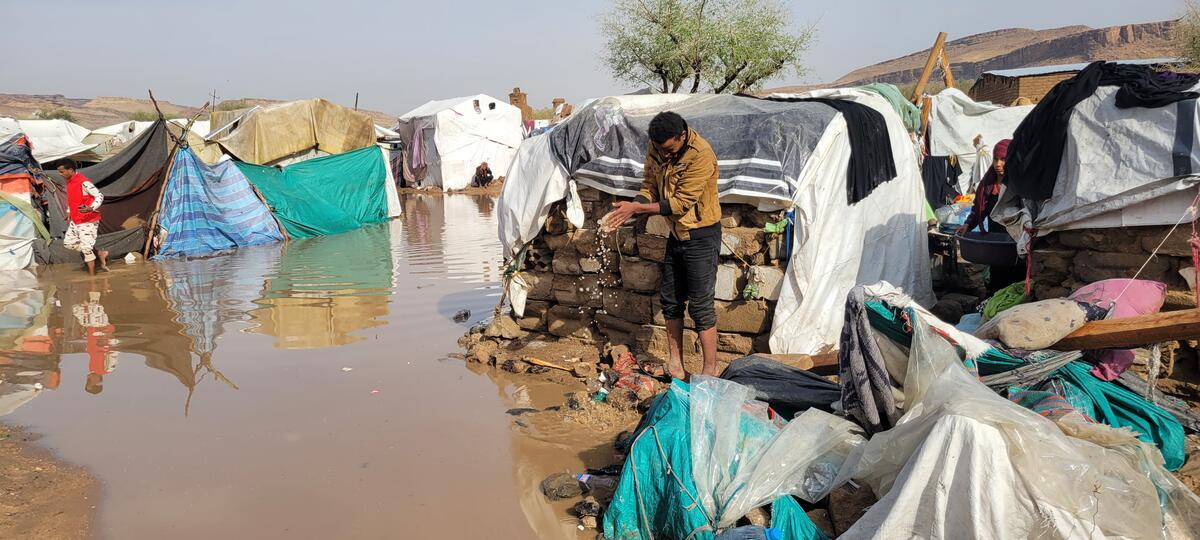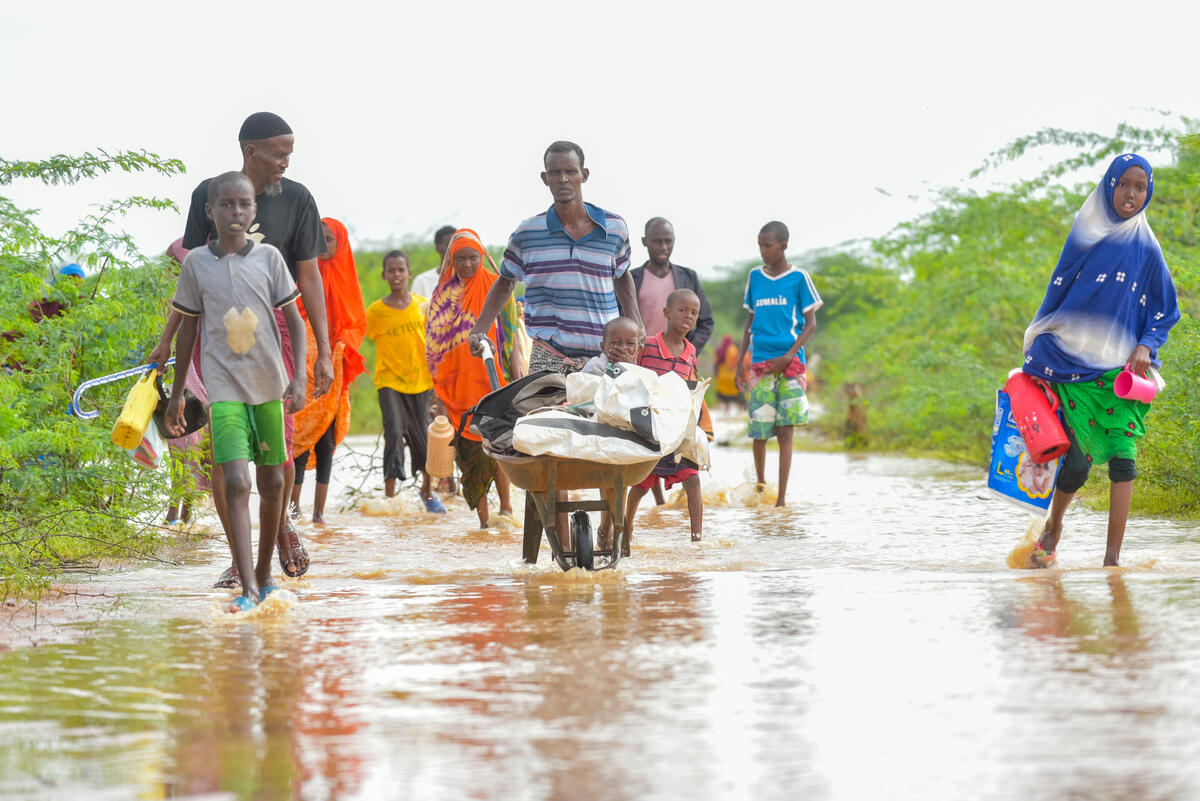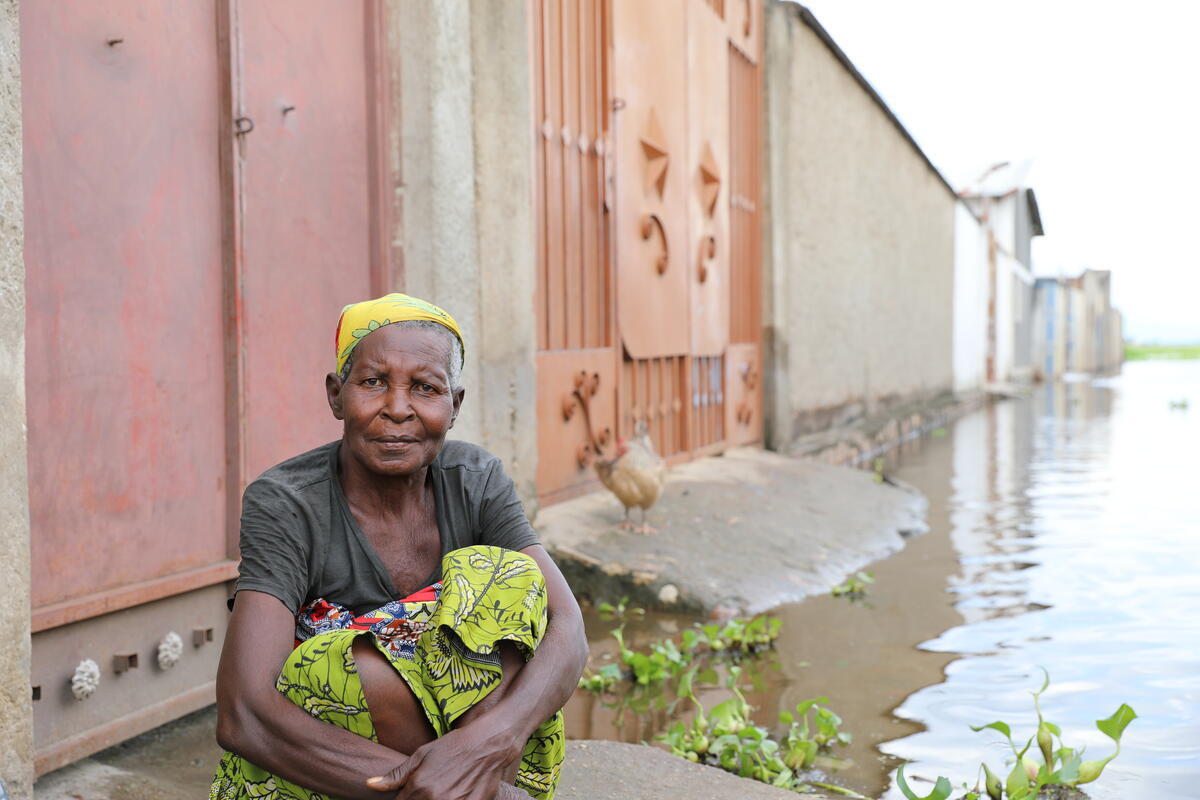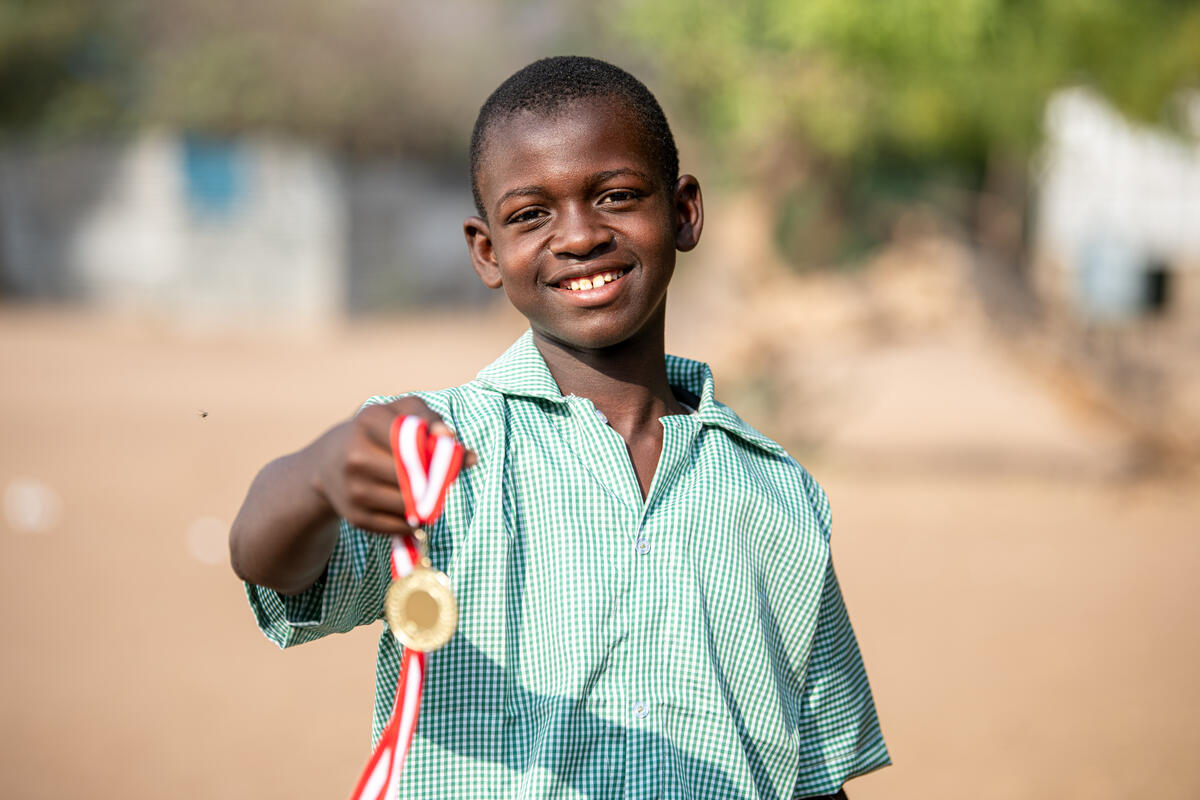Teenage Somali refugee aims to become a hip hop superstar
Teenage Somali refugee aims to become a hip hop superstar

CHOUCHA TRANSIT CAMP, Tunisia, March 29 (UNHCR) - Saber has his future mapped out. "It's clear to me I'm going to be a big star," says the budding hip hop artist. But then he adds, "Without my family, my dream is nothing," and it hits you that however confident he may be, he's still a vulnerable teenager who needs help.
The 17-year-old refugee has been stuck at the Choucha transit centre near the Tunisian-Libya border crossing for a year and now waits anxiously to hear if the United States - the home of hip hop - has accepted him for resettlement. It's a slow process, but as an unaccompanied minor he is regarded by the UN refugee agency as particularly vulnerable.
Isabelle Misic, a senior UNHCR protection officer, said unaccompanied minors "not only face the hardship of staying in another country as children, but they are also at risk of abuse and exploitation in the absence of their parents." UNHCR closely monitors the situation of children in Choucha and has helped establish community networks to support some 100 unaccompanied minors still in the camp, in addition to providing schooling, sport and recreational activities through the Danish Refugee Council.
Saber fled the war in his native Somalia five years ago, ending up in Libya before fleeing to Tunisia in March last year after anti-government protests that led to the eventual downfall of Muammar Gaddafi's regime. He clearly wants to get out of Choucha. "It's too cold, or too hot. It's windy. I dont feel happy in this place." Seeing other unaccompanied children leave for resettlement in Europe recently has been difficult.
But the teenager has been making the most of his time, gathering a loyal following among the more than 3,000 refugees and asylum-seekers - mainly single young males from sub-Saharan Africa - for his hip hop wizardry. The young man, as "S'Joe," performs once a week at a community centre run at the site by the Danish Refugee Council. When UNHCR visited, he was entertaining dozens of young children at a party held to keep spirits up for those awaiting news on resettlement to third countries.
Saber has clearly never suffered from a lack of self-belief. When he was just 12 he decided to leave Mogadishu without telling his family, as "I was afraid they would say I couldn't go because I was too young," and headed off with a neighbouring family to Addis Ababa in Ethiopia.
"There was a security problem in my country," he told UNHCR, understating the bitter conflict that began ravaging Somalia four years before he was even born. "Also, I never had any opportunity to get a proper education in Mogadishu," added Saber, the eldest of nine children, citing his other key reason for leaving the Somali capital.
After two months in Ethiopia, his Mogadishu neighbours left for Europe, leaving the youngster on his own. He fell in with a group of young Somali men who agreed to take him with them to the Sudan capital, Khartoum. "I stayed in Khartoum for eight months and I tried to get work, but employers said I was too young." So he joined another group who were going to Libya. "I didn't have to pay. We entered Libya at Kufra [in the south-east]."
His luck ran out near the eastern town of Ajdabiya, where he and his guardians were arrested and detained for six months, only being released after paying money. Saber's next stop was Tripoli, at the end of 2008, where his musical career began.
"I liked music so I created a group called 'Oncod Again' [Thunder Again]," he said. The teen rapped in Somali, while his older bandmates - three girls and one guy - provided backing. He also learned "from Libyan friends, who bought me a guitar" and says now that, "When people saw me, I said I was trying to be a musician and they supported me."
The band performed mostly in people's homes, but were ready to move to the next level. "On March 17, we were planning to do a big concert," Saber recalled, "But the war intervened." Nine days before the gig, he had joined the tens of thousands of other foreigners streaming across the border into Tunisia at Ras Adjir, just seven kilometres from Choucha. "I was afraid about the war and sought safety," he explained.
There's not a lot to do in Choucha, but Saber has been pursuing his dream here. And he's found a mentor and teacher, a 30-year-old rapper who introduced himself as "SD." The Nigerian has been teaching "S'Joe" how to rap and write lyrics. SD saw his pupil performing at the Danish Refugee Council's community centre.
"I thought this guy is good," but lacked musical training and decent equipment, said SD, who has been sharing his knowledge. For starters, they have to use a mobile phone to download backing music because they don't have a computer that would allow them to create their own sounds.
"We look for beats and then do whatever we want," SD said, adding: "We sing about the things around us." Saber also regularly watches MTV on a neighbour's set for inspiration. And the two have already created a portfolio of work, with titles like "Tears of Pain," "Disguise my Limits," "Choucha Gospel" and "Don't Go Back," which is a message to those in Choucha who think of returning to Libya to make the dangerous sea crossing to Europe.
And aside from fuelling his ambition and optimism, hip hop is also helping with Saber's education. He sings mostly in Somali, but notes that for real success "there is something missing - English." So he's been attending language classes, determined to add another string to his hip hop bow.
Meanwhile, two things prey on his mind - his family and resettlement, following referral of his case to the United States for consideration. With the help of the International Committee of the Red Cross he talks to his kin every Friday by telephone. He hopes that one day they will be reunited in a new country, where they can all follow their dreams.
By Leo Dobbs in Choucha Transit Centre, Tunisia







